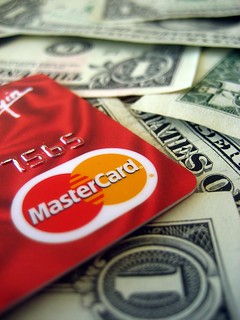Important Reminders for Using Your Credit Card Abroad
Carrying cash can be a source of stress and traveller’s cheques outdated so it’s only natural that businesspeople and holidaymakers use their credit cards abroad. There are, however, a number of considerations you’ll need to take into account if you plan on using your credit card abroad, including having cash or a traveller’s cheque on hand just in case of an emergency; i.e. your credit card has been lost or stolen.
Card acceptance – Do you have the right card for your destination?
If you’re travelling in the West, for example Australia, Canada, Europe, New Zealand, the UK or the US, it’s unlikely you’ll experience any problems using your credit card.
Certain countries, and regions within certain countries, can prove problematic in this regard so if you’re heading somewhere off the beaten track it would be a wise move to check to make certain your credit card will be accepted; moreover, you should probably also check to ensure that you can use it there at all.
Card security – Are you adequately covered?
Security should rank highly on your list of priorities concerning using your credit card abroad so before departing overseas, give your credit card provider a call to let them know the dates you’ll be departing and returning home. This isn’t only important regarding the credit cards that you take with you, but also the credit and debit cards you leave behind at home.
Whilst most credit card providers now utilise microchip and PIN technology – these technologies provide higher security standards – if you’re still in possession of a magnetic stripe card you may need to show your passport when making in-store purchases and when paying at hotels and restaurants.
Transaction fees – How cost effective is your credit card to use overseas?
The transaction fees that travellers can be hit with are often ridiculous and regularly have the effect of making those stung look for a new credit card provider. Check the transaction fees before you go so you know exactly how much you’ll be charged for purchases and cash advances, and if necessary look at applying for a more competitive card for your travels.
Exchange rates – Do you know what you’re spending?
Nowadays travellers have the option of buying credit or debit cards with locked in currency exchange rates so they know exactly what they’re spending. If you don’t want to apply for one of these cards check your credit card provider’s website or give them a call for more information on how exchange rates are calculated.
However, you’ll generally find the currency exchange rates that affect credit cards are more competitive than what banks and currency exchange offices can offer you, though just to be on the safe side it’s wise to check.
Internet banking – Can you check how much you’ve spent?
If you don’t yet have internet banking linked to your credit card, apply before you head overseas. Internet banking is the most convenient method of checking how much you’ve spent and how much more you have to spend.
Furthermore, by keeping an eye on your credit card usage via internet banking, you can easily transfer funds from your savings account at home to minimise the interest your overseas spending accrues, and only access your internet banking account on computers you trust.
These five important considerations are some, though not all, of the most important considerations to take into account when using your Visa cards overseas. In addition to what’s been discussed here, don’t overlook the benefits of a backup debit card in case of emergencies and ensure you know where your credit card is at all times.
About the Author:
GE Finance and Insurance is a subsidiary of GE Capital. They specialise in providing clients with quality Visa cards that can be used in over 100 countries.

Category: Credit Card






